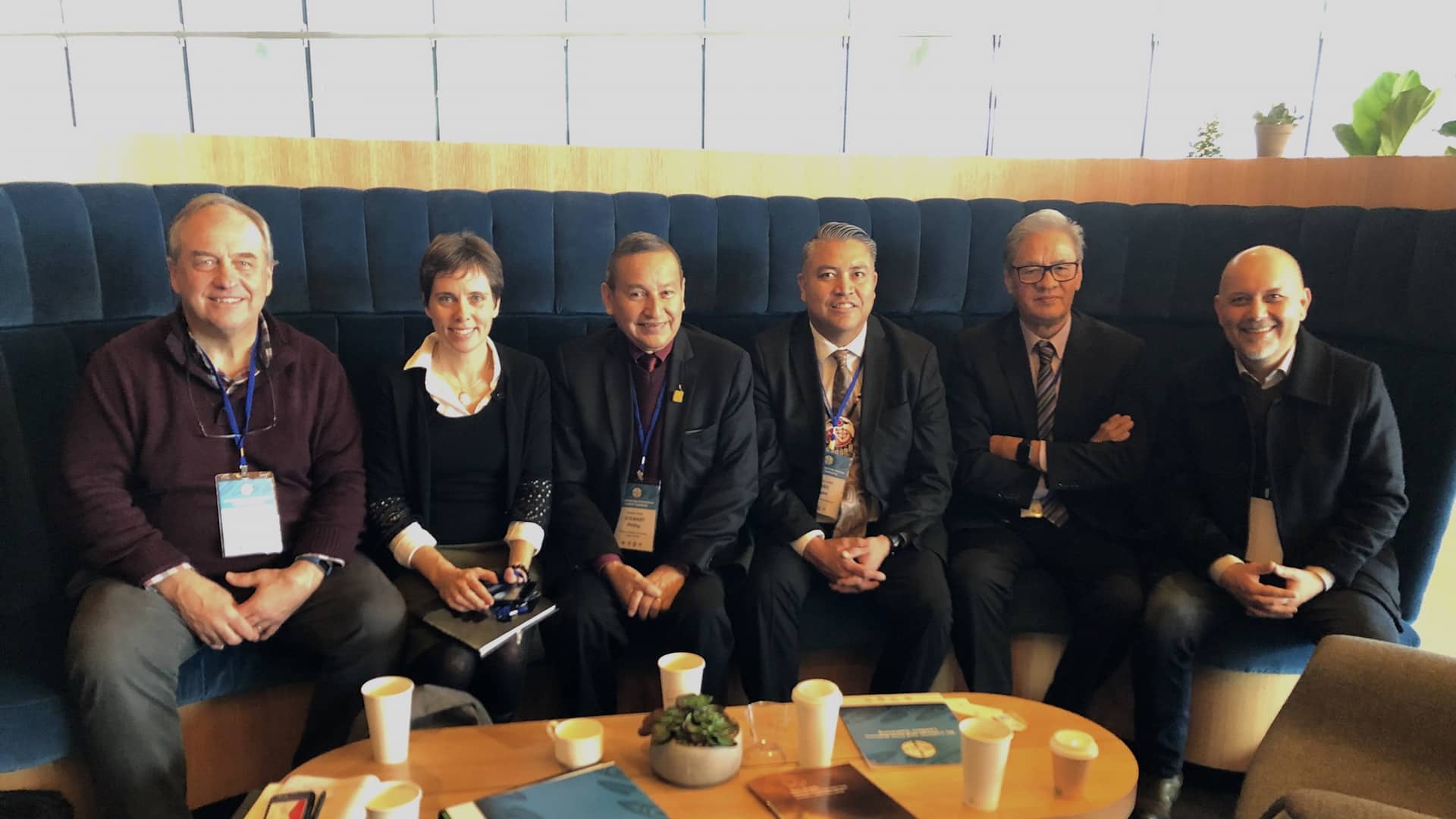As the week draws to an end Sonia, Andrew and I have been honoured to be invited to attend the First Nations Leadership Gathering at the Vancouver Convention Centre.
A lot has changed since the gathering started as a super-secret meeting between then-Premier Christy Clark, her cabinet and the Chiefs. There are many partially-told stories that have emerged from those early meetings that started in 2014.
The public tension between the BC Liberal government and First Nations leaders was palpable, as the province scrambled to regain full control following the Supreme Court of Canada’s Tsilhqot’in ruling.
A 2015 CBC article captures the distance between the two. John Rustad, then Minister of Aboriginal Relations and Reconciliation, celebrated the “remarkable advances” while Grand Chief Stewart Phillip stated the province was at “strike two” with just one strike left.
Turning the corner
The feeling in the room in 2018 is much different. Despite the fact that the pace of government is often painfully slow, progress on Indigenous relations is being made.
The BC Green Caucus made sure that reconciliation was a substantial part of our agreement with the BC NDP. It forms a critical part of our Confidence and Supply Agreement. Flowing from that every Minister’s mandate includes the hard work of real change. Reconcili-ACTION as former Lieutenant-Governor Judith Guichon urged.
Current Minister, Scott Fraser, has taken a completely different approach than his predecessor. It is both welcome and refreshing!
The two-day conference started with two major announcements. First, in Budget 2019 the province will give First Nations a piece of the gaming revenues for the first time. Second, the provincial government is working with the Assembly of First Nations, First Nations Summit and Union of BC Indian Chiefs to develop legislation, also for 2019, to implement the United Nations Declaration on the Rights of Indigenous People. (See full news release.)
Steps forward on reconciliation
These are substantial steps forward. In addition, they help frame a positive start to an important annual gathering. Is everything fixed? No! Far from it. But, at least the province is not perpetually locked in a bitter dispute with First Nations leaders.
Even though there is still so far to go, it feels manageable. Indeed, reconciliation feels possible.
Certainly, government has a big policy mountain to climb. Sorting out the governance issues will be difficult. In particular, some vested interests will fight to keep the status quo. It will take courage and tremendous leadership.
There are extremely concerning issues with land management, water, forestry, wildfires, economic development, and reparations for past wrongdoings, to name just a few on a very long list raised by the leaders of First Nations communities from across the province.
So, as the relationship has evolved and the current government is far more receptive to working collaboratively than the last, expectations also grow. No doubt, managing those expectations will be a challenge unto itself.
From the conversations I have had here, there is an overwhelming desire by the First Nations leaders to be active partners in finding solutions. Now, the question remains. Will the provincial government be willing give up some of the power and a share of the responsibility? Only time will tell. But, it is my hope they do!


Reconciliation starts with losing English Language Rights.
Last week Squamish Nation council voted 8-6 to approve an Impact Benefit Agreement with Woodfibre LNG, FortisBC, and the Provincial Government, fulfilling a key condition imposed as part of the Nation’s environmental assessment process.
It’s amazing that the Squamish Nation sees the short-term gain and they do not see the long-term environmental destruction. The idea of being stewards of the land is beginning to fade, along with the peoples who have lived on the land for centuries. The ill-informed and the short-sighted decision makers seem to control the earth’s fate.
I have no idea how to support a decision, where money controls the majority of minds. The only political person who has some say in this matter may be Andrew Weaver. But Andrew needs to be in front of an audience so that the ill-informed can listen to the effects of gas-fracking that will go on on their lands, affecting the aquifer, lakes and rivers.
And when the fish can no longer be eaten or seen, or the water isn’t fit to drink, don’t come back babbling colonialism. The health of the Squamish Nation was in their hands for the next generations, but they decided to fold their teepee and leave with a few bucks in their hands.
Thank you Ron. You raise important points and I am very disappointed by this decision. We need to be moving away from fossil fuels not investing in new infrastructure!